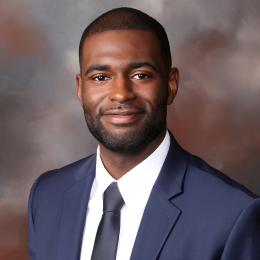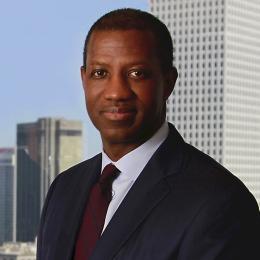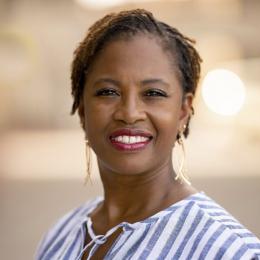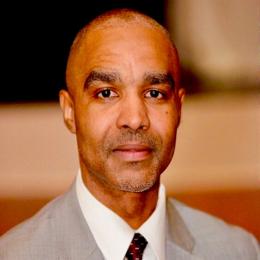Banner Artwork by deepadesigns / Shutterstock.com
Diversity, equity, and inclusion (DEI) are continuing concerns in the business and legal communities. While a successful DEI initiative will undoubtedly benefit a corporation or private law firm, many companies struggle to seamlessly weave DEI into their existing cultures. Effective DEI programs are, as a result, a moving target for corporate general counsel and law firm managing partners. These dynamic and evolving efforts warrant a deeper dive into how we can set an achievable target.
Many companies struggle to seamlessly weave DEI into their existing cultures.
Baker Donelson assembled a panel to discuss the importance and challenges of integrating effective DEI programs. The panel included:
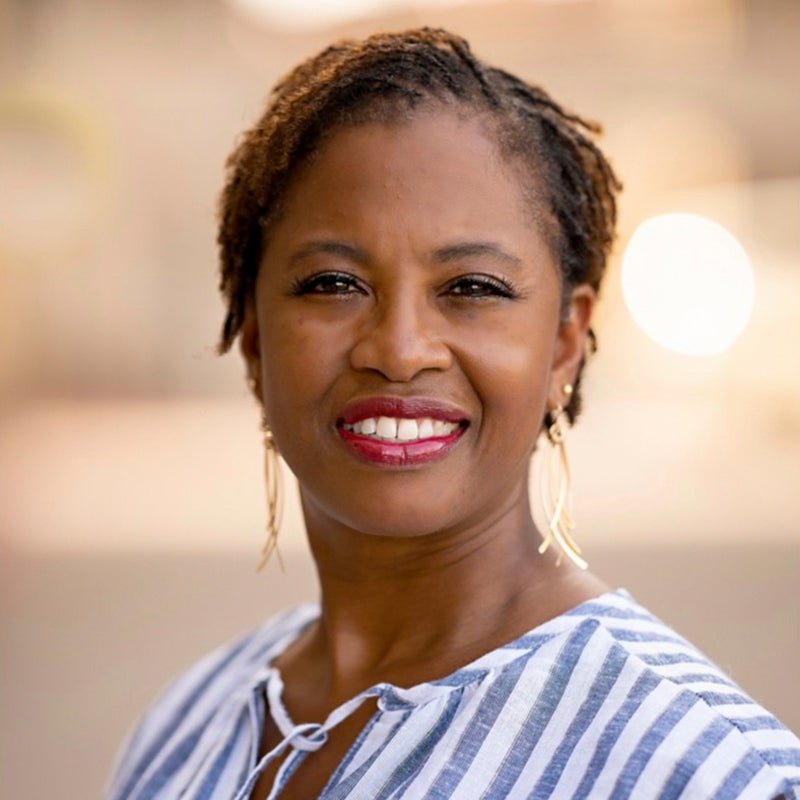
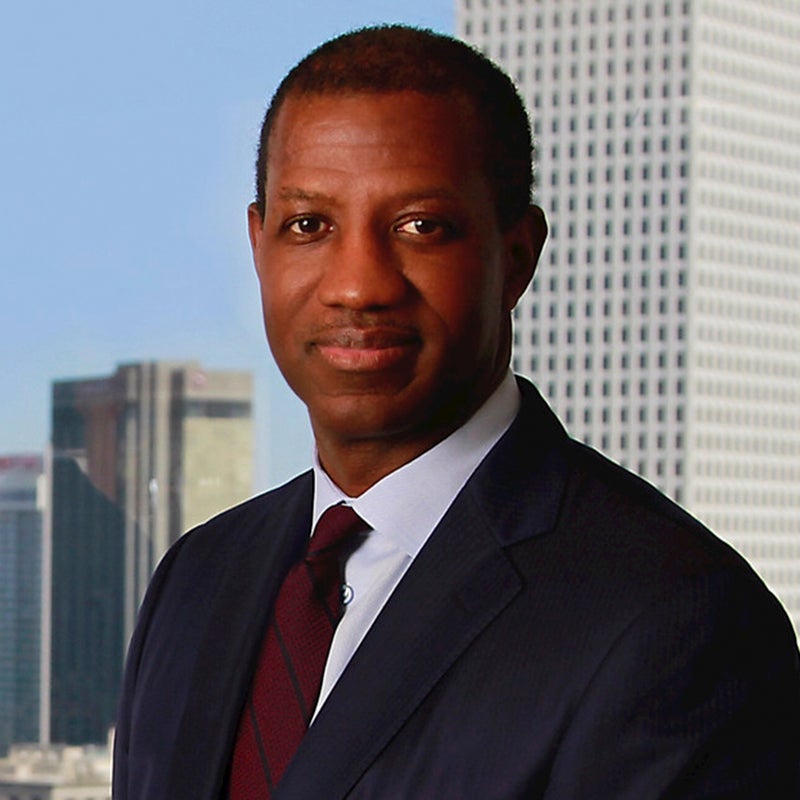
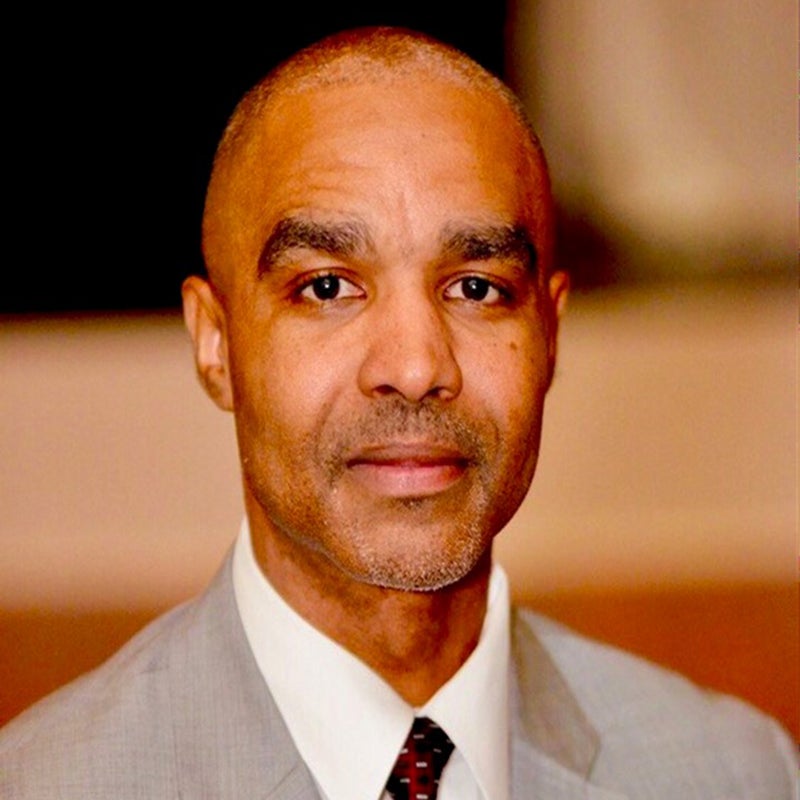
The panel was moderated by:
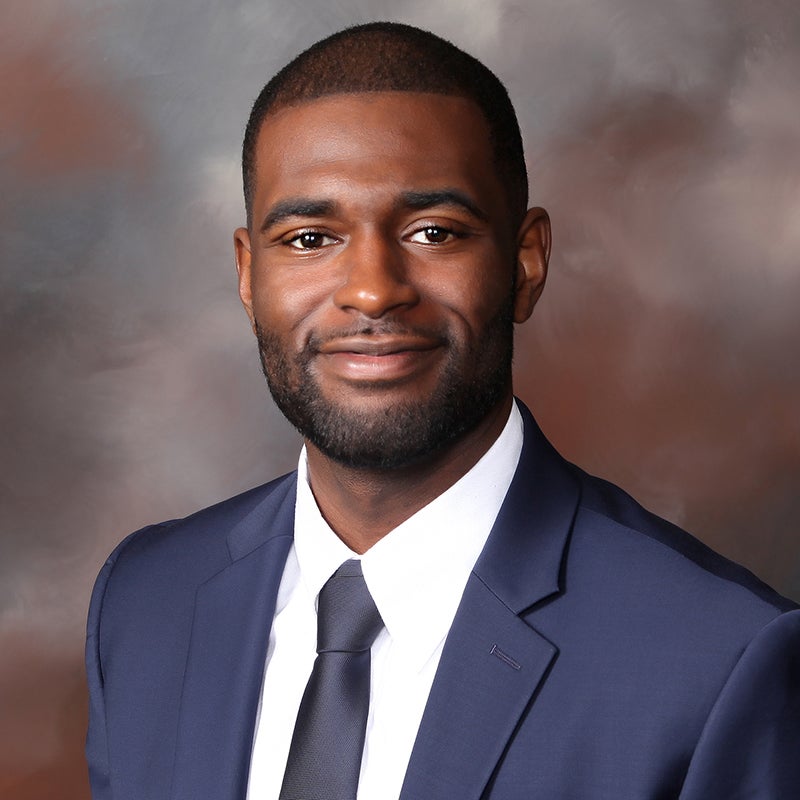
Sustainable DEI
Among the best practices the panelists offered to corporations and law firms is that companies should adopt sustainable DEI policies and protocols. From attracting minority counsel to creating a nurturing environment for young attorneys, the panelists agreed on fundamental characteristics of a sustainable DEI program, chief among the best practices discussed was the principle that "diversity begets diversity."

Excerpts from the panel discussion are recounted below, but you may also listen to the full discussion, “Diversity in Law Firms: An In-House Perspective,” on the “Diversity Ever After” podcast.
Overall goals and programs
Kennard Davis: What is your goal, as general counsel, with your company's DEI efforts?
Marcus Brown: Sustainable change. There are things we can drive through our positions or by the force of our personalities, but when that is the case, once we move on, the change will not last. GCs are trying to build policies, values, and processes that are sustainable long term.
When it comes to diversity, it is important to be intentional about creating it. Anytime there is a job, there are a handful (or more) of people who can all do that job. However, somebody must decide who gets the opportunity. And if you are trying to drive diversity in your organization, then that becomes a factor. Now, if you do not want to get to a diverse environment, and you take that out of the equation, then you could end up with a homogenous result every time.
We are trying to find the right kind of people with the right kind of mindset, first, because you can have all kinds of people who will help you get there or will prevent you from getting there. Then you want teams that reflect what you want to accomplish. You want them to have policies and metrics in place to help make sure you are measuring and driving towards that. And then, if you put all those things in place, you can create something that is sustainable long-term. Along the way, GCs will make decisions about individuals who will help drive that process faster.

You can have all kinds of people who will help you get there or will prevent you from getting there.
Another important aspect of diversity is what companies, GCs, and law firms put in place that allows them to keep it going a long time: the tipping point. Because, in these corporations, it is no longer about individuals trying to drive change on their own. Companies need to drive change.
As an example, one of the most important things boards of directors do is hire a CEO. The people who work for the CEO are not hired by the board. They are selected by the CEO. Boards are now under tremendous pressure by groups that follow them closely, like ISS, Glass Lewis, BlackRock, and other institutional investors and others, who are saying boards need to change and be more diverse. Therefore, they are causing board turnover to happen faster and are driving boards to have greater gender and minority representation. Then you get different looking boards, different looking CEOs, and different looking leadership teams.

Danielle Agee: We spend a lot of time at Verizon on the pipeline. How do we increase the pipeline of Black and brown lawyers, more diverse lawyers, coming into this profession?
We run a legal internship program every summer in five offices where we host law students who have completed their first year of law school. It’s a unique program, as there are not many in-house legal internships. But it is giving diverse law school students exposure to the practice of law from a corporate counsel perspective beyond law firm opportunities.
Also, this year, we created an Historically Black College and University — HBCU —internship program to increase the pipeline of Black students interested in the law. Juniors and seniors who attend an HBCU, who plan to go to law school, are eligible for this program. Both internships are paid because we know that it is important to students.
Our hope is we can increase the pipeline of people who are interested in law, who see that a career in law is achievable, and then they can take that experience and move forward in a way that they otherwise would not have. We do the programs in partnership with a handful of firms, allowing us to increase the number of interns we have every summer.
We encourage others to get engaged in pipeline programs. Black people still only make up five percent of the legal profession in the United States. Black women only make up around two percent. This has, reportedly, risen some, per recent stats, to 3.17 percent. Increasing those numbers is an important goal of ours.
Christopher Walker: As for creating the pipeline of candidates, naturally we are going to have very good and qualified candidates coming out of law schools. But then once they get to the law firms, we must continue to drive them to be included on the files, working on the files, creating, and developing expertise in a variety of areas. They need to bill to the files, and then, at some point, to have direct contact and control of matters, or at least serve as second chair of the litigation, or help draft or negotiate the contract. Otherwise, they will not succeed in law firms long-term and when they move on, you start over from scratch.
Objectives
Kennard Davis: What do you all hope to accomplish with these programs?
Marcus Brown: If you look at our diversity, inclusion, and belonging statement, we say publicly that we want our employee base to reflect the rich diversity of the areas we serve. But we are mindful that when we try to achieve that, we cannot set quotas. We understand some of the limitations but, to me, a mature plan for achieving these outcomes is one that has these policies and processes in place, and it is going to have the metrics to measure them.
We say publicly that we want our employee base to reflect the rich diversity of the areas we serve. But we are mindful that when we try to achieve that, we cannot set quotas.

The next step is that those metrics will be tied to the pay and performance of the people who are driving these efforts. Our compensation is, at some level, tied to the organization's success in creating and maintaining diversity because people measure what matters and we get paid for that. You will see the biggest fights in a company about tying people's pay to these kinds of outcomes.
Kennard Davis: Why is it that we do not see more African American and other minority rainmakers or relationship partners?
Christopher Walker: When I talk to young attorneys coming out of school, I always say that it is not just being a great lawyer that is going to get you positions like we have or a law firm partnership. It is your mentors and relationships you build along the way. And it is the buy-in of the other partners that you come into the law firm with. Minorities do not have the luxury of inheriting a book of business or being groomed to be a relationship partner because minorities lack the necessary relationships. That is why we drive it with the programs we are talking about today.
I advise associates to network with people they went to undergraduate and law school with because they are going to end up in higher positions at some point and they can build business there.
Network with people they went to undergraduate and law school with because they are going to end up in higher positions at some point.
Danielle Agee: On two that Marcus said before: "Diversity begets diversity," and "People like working with people who they feel comfortable with." As we know, with the Black and brown people in law firms who aspire to reach those higher levels, those partnership levels, who are looking around for books of business, chances are they are going to get a lot of opportunities — if they are going to get any — from people that they are in social and professional networks with.
One of the things that I often say to law students and now to those HBCU students coming through Verizon, is to make sure you are developing your network from the start. You are going to school with the people who are later going to become CEOs, chief technology officers, and other executive positions, and if you can continue those relationships over the years, when they find themselves in a position to start hiring someone, they will remember you. So that is the first thing, and that is a big part of this.
Many law firms have a culture problem. Before you even get to the point where you are looking for business, you must feel comfortable where you are working every day because you are working a lot of hours as a lawyer, and especially as a young lawyer. If you are doing it in a place where you cannot bring your authentic self, you do not feel like you belong, no one is including you in all the important work and they are not including you in the social stuff that happens after work, why would you want to be there?
Many law firms have a culture problem.
Creating a culture where everyone feels like they can thrive, where they are included, given interesting work, access to important work and the rainmakers, and where they are similarly developed is something that law firms which care about diversity, equity, and inclusion need to work on. Of course, we all own our careers, but if the people in power do not want to give us an opportunity, the same opportunities that they are giving everyone else to be developed and to be successful, then we are probably not going to want to stay there.

Marcus Brown: It is competitive to get into a corporate law department. A trait a lawyer needs to be successful is figuring out how to talk to people at different levels in the organization who are looking for you to give them, in 20 minutes or less, the information they need to make the tough decisions. At the same time, you have pages of stuff in your head, should they ask for it. I have seen people unable to make the transition in how they communicate as they go up the ladder. These are bright, capable people who do not recognize that they need to adjust to a different audience at every level, which is a small thing but a very important thing, nonetheless.
I have seen people unable to make the transition in how they communicate as they go up the ladder.
You can tell people how to do this, and most of the times they will understand it. You can show it to them, and many can adjust to it. But if you leave somebody on their own, they may never figure that out, and I have seen people not figure out why somebody else is getting an assignment and not them.
Therefore, there is a lot that we can do to educate people in ways to be successful. I must be comfortable that, when you talk to me, you understand what we are trying to accomplish. Do you listen to earnings calls? Do you read annual reports? Do you know what the business strategy is? Are you trying to help the companies accomplish their goals?
Kennard Davis: What advice would you give to a law firm, other GCs, and attorneys at law firms who are a part of these diversity efforts and want to advance them?
Danielle Agee: My advice to the younger lawyers is to find someone who can show you the ropes, somebody you can talk to, somebody you can learn from. You can meet people through bar associations, other friends, and professional organizations. Find someone who can help identify your blind spots, who you can run things by when you need to, and vent to when you need to.

Law firms should look at their culture and see if there are ways they can improve upon the culture.
Corporate department lawyers should talk to peers in other companies and get a sense of what their corporate or DEI best practices are. We have learned a lot and implemented a lot over the years, because we are constantly looking at best practices across the United States and from different companies.
We have learned a lot and implemented a lot over the years, because we are constantly looking at best practices across the United States and from different companies.
Diversity is most successful when it starts from the top, and to have the leadership within your organization who cares about diversity, who is going to promote and support diversity, requires a diversity metric in your annual performance agreement. Our board cares about it, our CEO cares about it, and it is in our performance agreements now, so everybody must care, in some way. Whether they really do or not, they must act as if they do. And that is going to help us move the needle.
Marcus Brown: Looking back over the last 30 years, the legal industry did not show any need to change in terms of diversity in the industry. But as we look forward, we know the industry must change. The difference is that the change that law firms used to be asked to make was something that they were going to do because they wanted to, or they felt like it was the right thing to do.
Going forward, the law firms that work for big companies will have to care about the culture, diversity, and inclusion, and the long-term issues associated with them because companies care about them. Law firms will not be able to escape the scrutiny that is associated with being a service provider for a company that is under this level of scrutiny, and so GCs will be looking for partners who value the same things we value.

Law firms will not be able to escape the scrutiny that is associated with being a service provider for a company that is under this level of scrutiny, and so GCs will be looking for partners who value the same things we value.
If you want to be successful going forward, what matters to us must matter to you. And if you want to get ahead of that, then you will figure out ways to develop the kind of culture that tracks talent, to develop it and keep it. That is just a business imperative. We have been saying it is a business imperative for a long time, but it is just becoming one because now the people who are giving out the business are being watched so closely.
What I see a lot of times is people who go into an environment, and want the environment to give something to them, which is a fair expectation, but you must get what you give. You must give something back. If you go into an environment with 100 lawyers, and there are three African American lawyers in that pool, they need to figure out how to deal with you, but you have 97 other people in there and you must figure out how to engage with them, too. It is not a one-sided obligation.
Success is a two-sided coin...
Success is a two-sided coin, and all of us have been in situations where we are surrounded by people, and still we feel alone. And then sometimes we are surrounded by people, and you find mentors through friends. You must be able to function in those environments and figure out how to find your way, and that is not about being strident and aggressive. You must figure out how to find some footing because there is common ground with enough people in any environment for you to figure out a way through it.
None of this is easy, but it is doable. When it comes to success in a law firm, in many cases, success is a 100 percent or zero percent proposition. Either you are successful, or you are not. So, we must figure out ways to help diverse attorneys manage these things on their own, with some help from others, by having processes and policies in place.
Additionally, special thanks to Christopher D. Joseph, Jr., an associate in Adams and Reese’s Baton Rouge office, for producing the Roundtable, and for being hands on with the drafting and editing of both the questions and article.
Disclaimer: The information in any resource in this website should not be construed as legal advice or as a legal opinion on specific facts, and should not be considered representing the views of its authors, its sponsors, and/or ACC. These resources are not intended as a definitive statement on the subject addressed. Rather, they are intended to serve as a tool providing practical guidance and references for the busy in-house practitioner and other readers.

